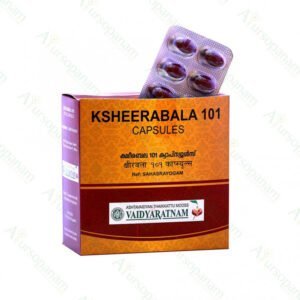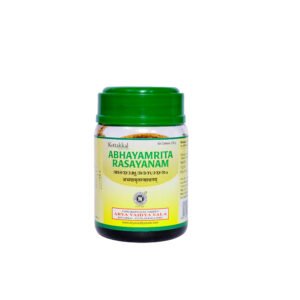What Does Amla Do For You?
- Improves immune function. Hypersensitive reactions and frequent infections are both due to a dysfunctional immune system. Amla modulates immune reaction to keep it functioning at an optimum level.
- Amla boosts respiratory health. Strengthens respiratory function and prevents recurrent cough and cold.
- Inflammation is the root cause of all metabolic disorders. Amla breaks down inflammatory pathways and flushes out metabolic toxins from the body. Effectively supplements your diet in managing hypertension, hyperlipidemia, hyperglycemia, and hypothyroidism.
- Excellent cardiotonic. Improves heart health and blood circulation. Helps the body in naturally overcoming iron deficiency and associated fatigue.
- Beneficial for the gut biome. Pitta aggravation results in heat and viscidity in the gut. Amla relieves excess acidity and encourages digestion and absorption. Stimulates appetite.
- Superlative anti-oxidant activity. It protects the body tissue against oxidative damage and stress. This is responsible for the fruit’s elixir-like qualities. Prevents premature greys and wrinkles.
- Strong, shiny tresses and blemish-free skin are indicators of robust health. It strengthens your hair roots and arrests hair fall. Regular Amla supplementation keeps away skin problems like acne, pigmentation, and blisters.
Why Amla?
The tangy freshness of the Indian Gooseberry rings with health and goodness. Rich in Vitamin C, it works wonders on your natural immunity and vitality. Ayurveda compares Amalaki to ‘Ambrosia’, the heavenly nectar, complete with the five tastes, endowing longevity on the individual who partakes it. Amalaki is one among the Triphala, the three berries that are an indispensable part of the Ayurveda materia medica. One of its synonyms ‘Dhatri’ in Sanskrit means ‘Mother’ which again points to its absolute life-sustaining qualities.
Several of its therapeutic benefits like anti-inflammatory, anti-aging, anti-oxidant, anti-stress, blood sugar and cholesterol regulating, cardiac health-promoting, and blood purifying properties have been established through evidence-based studies. Ayurveda attributes potent ‘Pitta’ pacifying action to Amla. Supplement your diet with this powerhouse of energy, proteins, vitamins, and minerals for a healthier and happier you.
Vedic Wisdom on Amla:
Ayurvedic pharmacodynamics
Rasa: PancharasaGuna: Laghu, RukshaVirya: SeetaVipaka: MadhuraKarma: Kapha-Pittahara, Rasayana, Ruchikaram
Classical reference from Rajanighantu
Amalaki has Kashaya, Amla, Madhura rasa (astringent, sour and sweet tastes), Seeta veerya (cold potency), Katu Vipaka (pungent indigestion), and Laghu guna (lightness). It mitigates Daha (excessive thirst), Pitta (Pitta vitiation), Vami (vomiting), Meha, and Sopha (whole-body edema). It is a powerful rejuvenating nature.
Phytoconstituents
These fruits are reputed to contain high amounts of ascorbic acid (Vitamin C), and have a bitter taste that may derive from a high density of ellagitannins, such as emblicanin A (37%), emblicanin B (33%), punigluconin (12%), and pedunculagin (14%). Amla also contains punicafolin and phyllanemblinin A, phyllanemblin other polyphenols, such as flavonoids, kaempferol, ellagic acid, and gallic acid.
Botanical name: Embilica officinalisFamily: PhyllanthaceaeEnglish name: Indian GooseberryHindi name: AmlaMalayalam name: Nellikka
Features & Benefits
- Excellent immunomodulator.
- Rich source of naturally occurring Vitamin C.
- Enhances iron absorption in the gut.
- Potent anti-oxidant rejuvenates and revives.
Dosage and Instructions
Two Amla capsules twice daily, or as recommended by the Physician.























































Ratings & Customer Reviews
Reviews
There are no reviews yet.